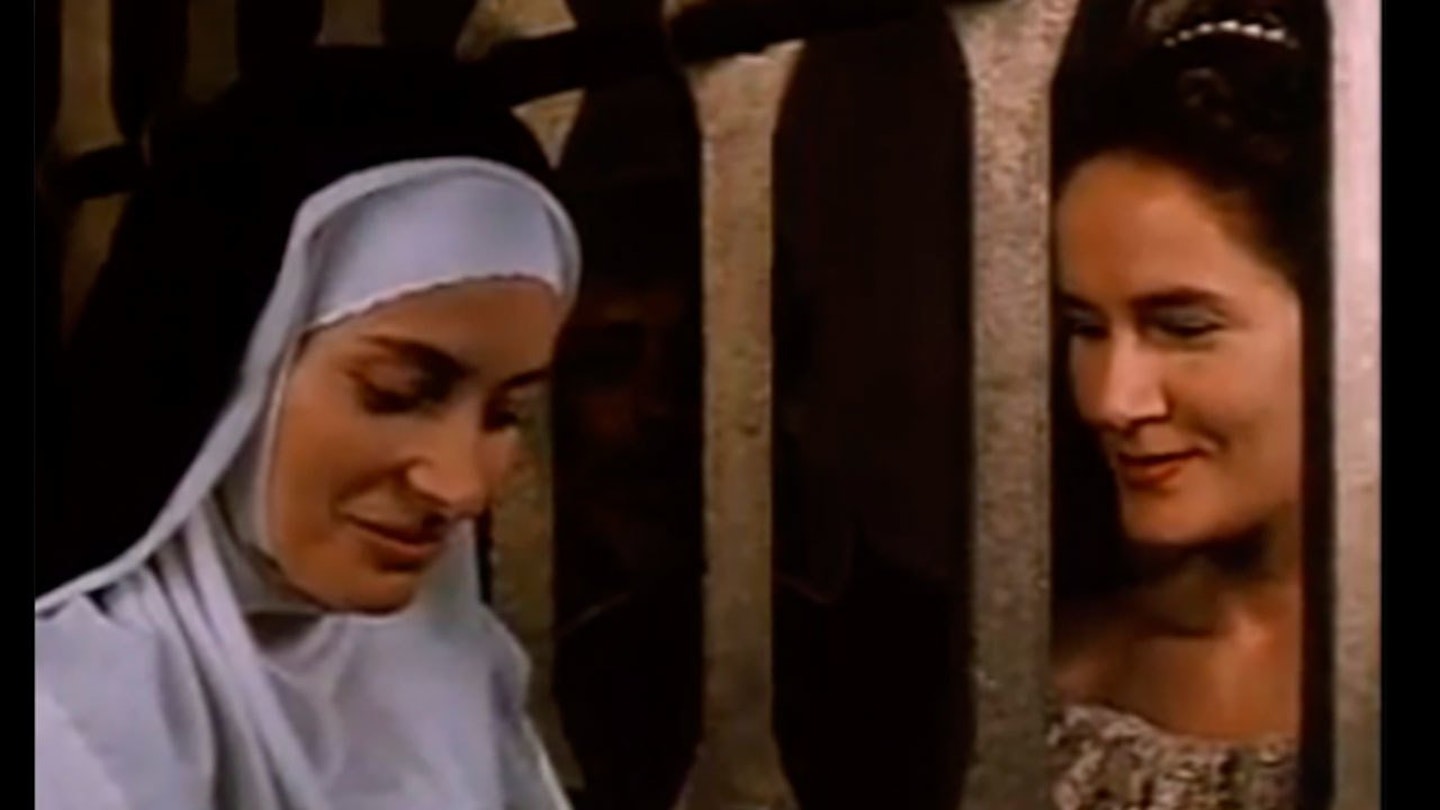Celebrated throughout the Spanish-speaking world as an independent-minded intellectual, a playwright and, above all, a poet, Juana Ines de la Cruz was also a nun in 17th-century Mexico. In the peace of the convent, protected by an understanding Abbess and, more significantly, the Spanish viceroy and his wife, Sister Juana lived a privileged life among her books and treasured objects. Alas, having taken vows in order to earn these advantages, she had cause to regret it when her protectors were removed by a powerful Jesuit archbishop who set out to destroy her. It is this tale that is told by Bemberg, Argentina's most distinguished woman director, whose work is always concerned with exposing bigotry and intolerance, and pleading the feminist cause. The result is a tasteful and accomplished film about a fascinating subject, but it requires a deal of patience and concentration. The pacing is slow for the first hour and we get talking heads rather than action, but as tragedy slowly builds within the silent labyrinths of the convent (magnificently designed by Voytek, stunningly photographed by Felix Monti) one is sucked into the extraordinary atmosphere.
At the centre of the film is the close relationship between Juana (Serna) and the Vicereine (a now graciously middle-aged Sanda), redolent of an undeclared love affair, and when the calm of their relationship is removed, giving way to appallingly graphic scenes of plague and of religious scourging with whips, the effect is explosive.
